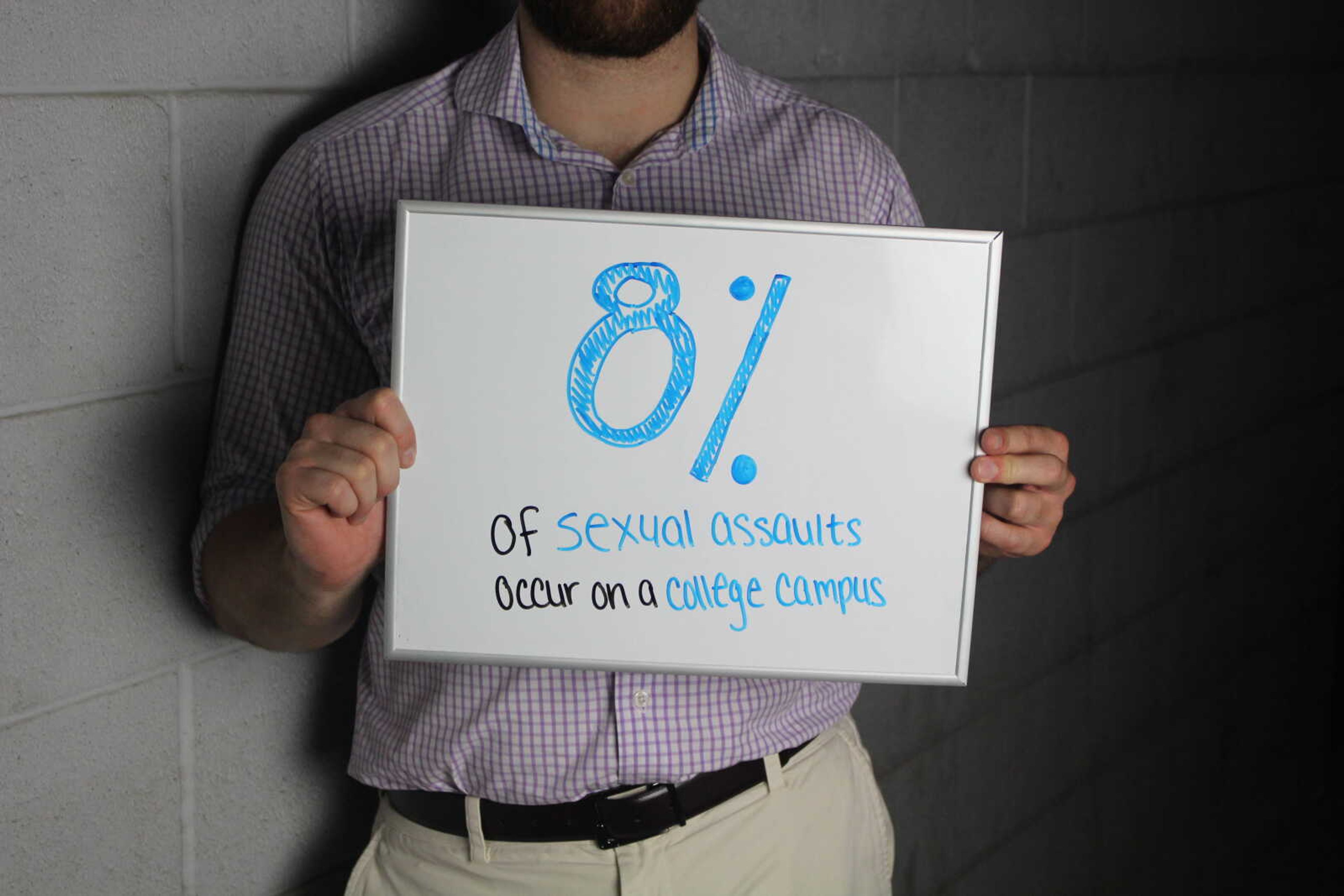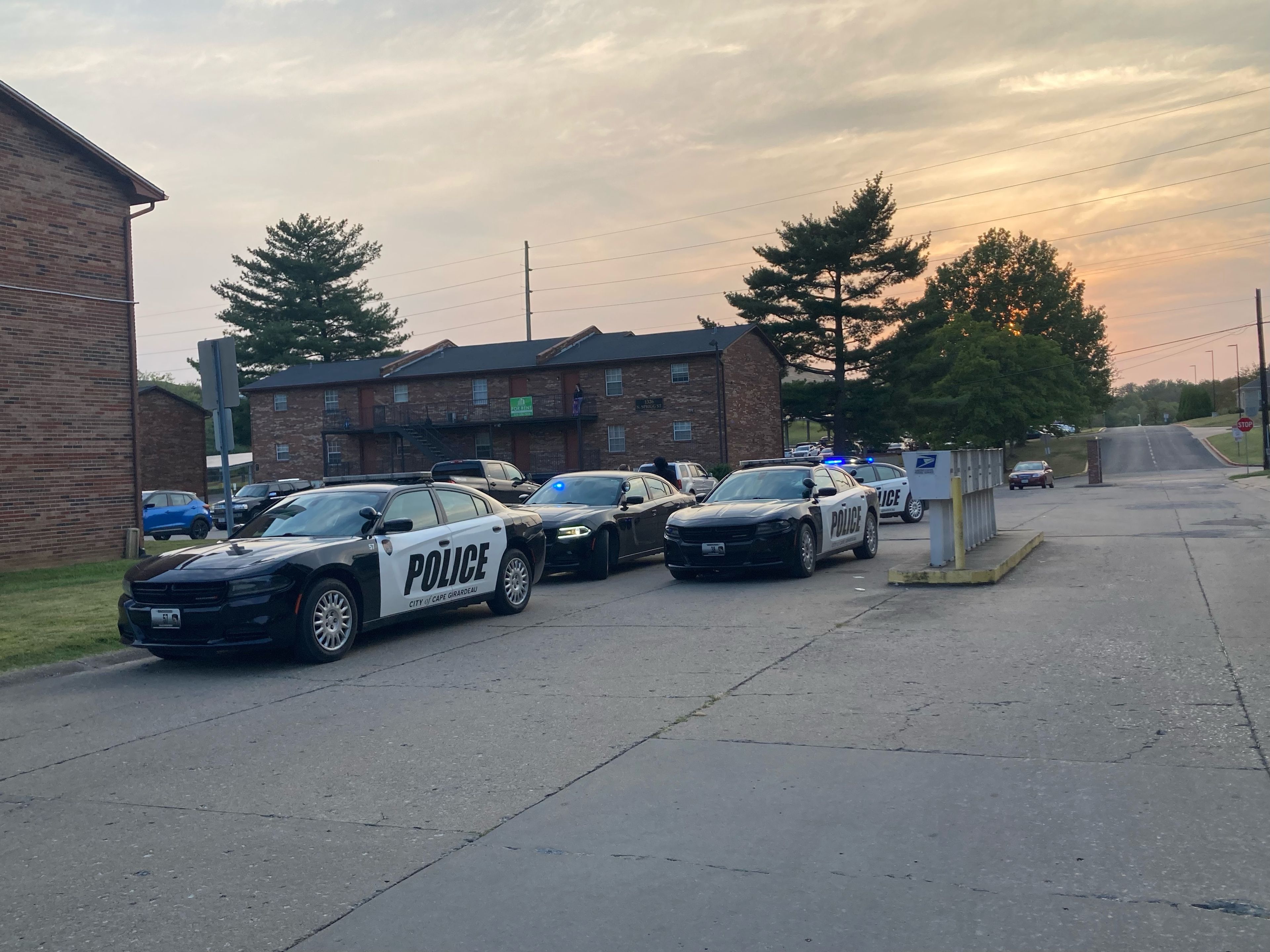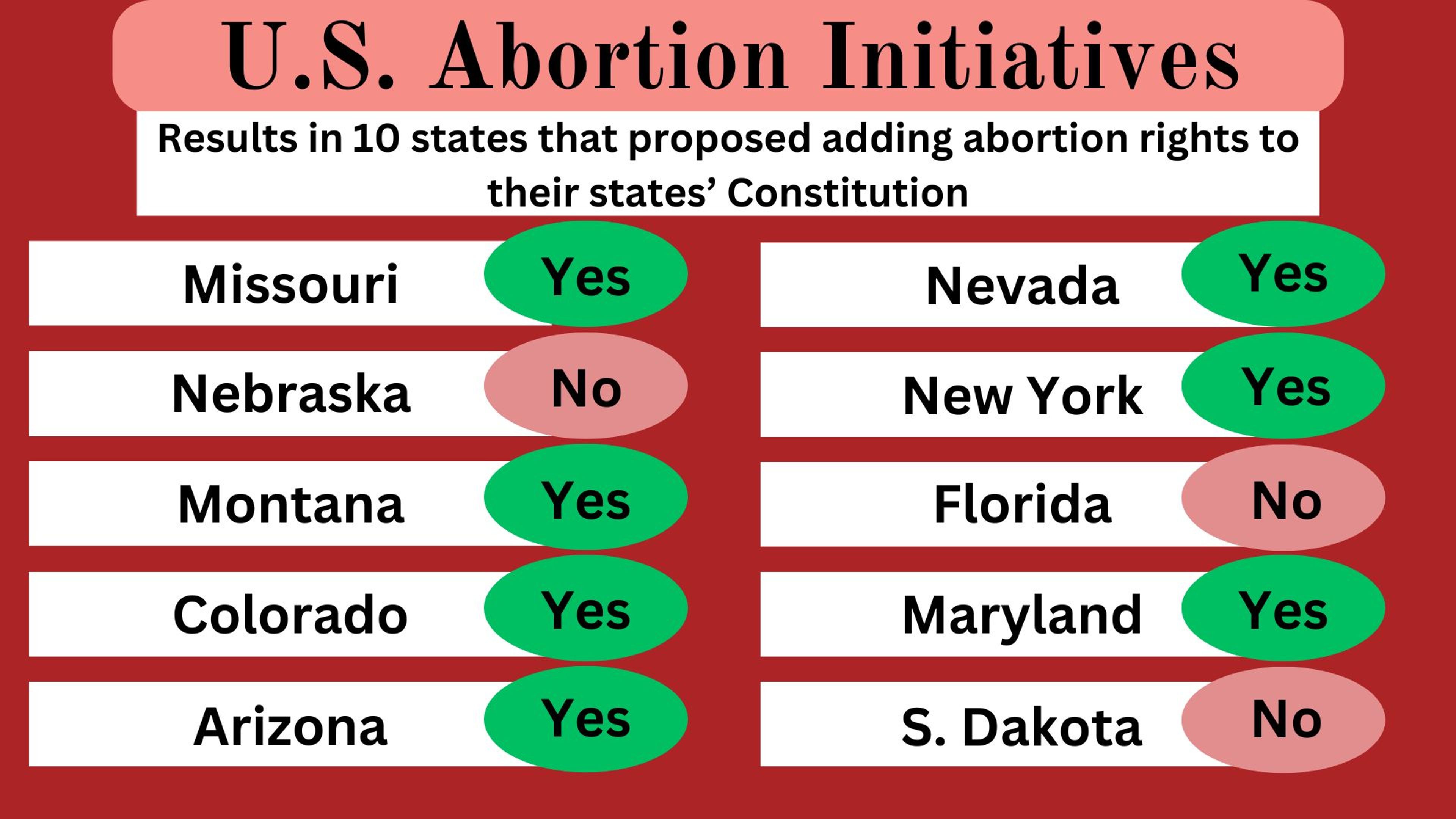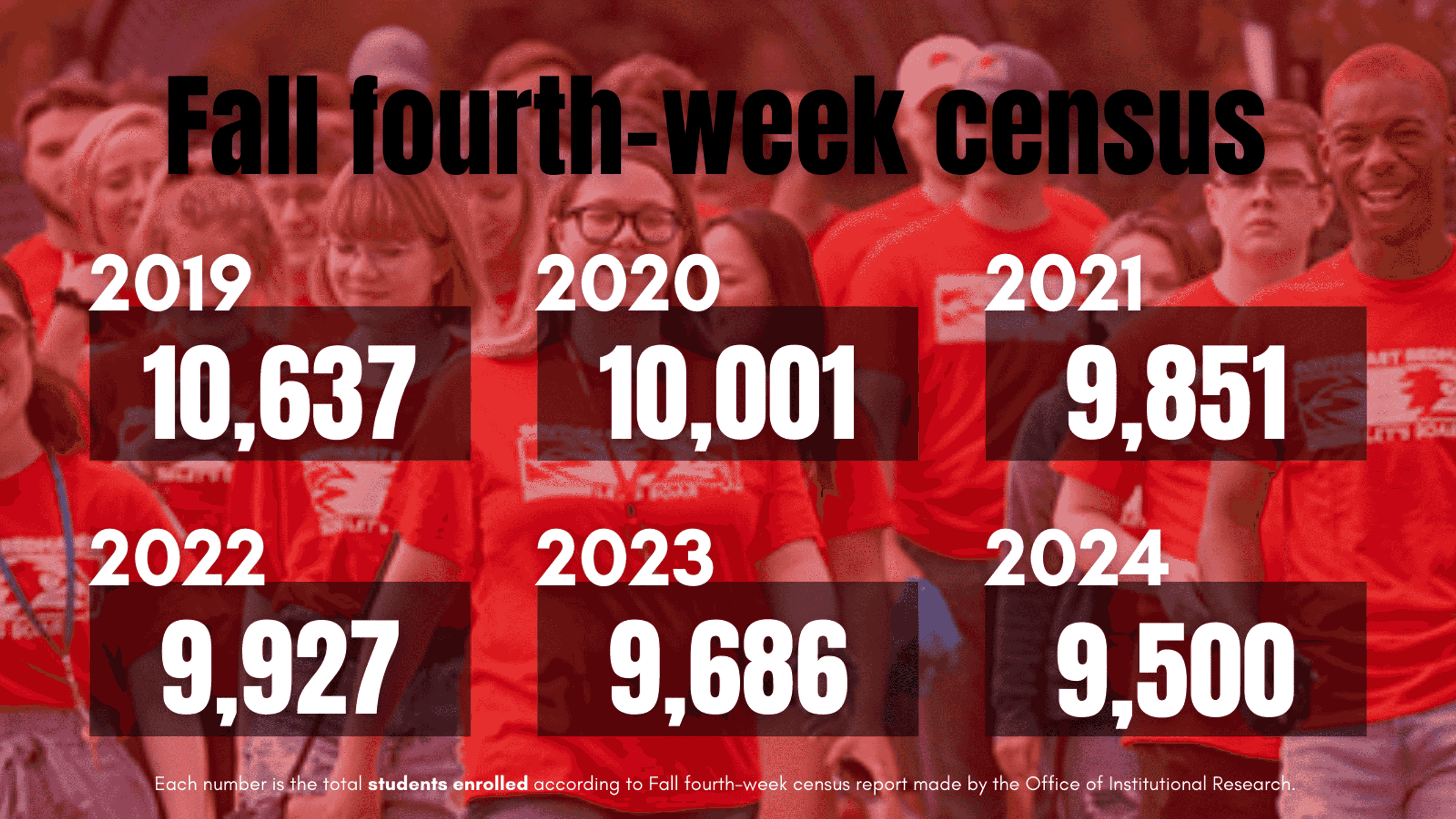Sexual assault on college campuses brought to national attention by Turner case
Every 109 seconds, someone in the United States becomes a victim of sexual assault.
On Aug. 18, Southeast Missouri State University welcomed 1,875 new students to campus for the 2016-2017 school year. With the beginning of the new school year comes new classes, new friends and new experiences. Every year, Southeast administrators prepare to welcome students to their new home with a variety of welcome back programs offered through Engage in Eight. These programs are designed to welcome students by giving them opportunities to connect with students from different organizations in their first weeks on campus.
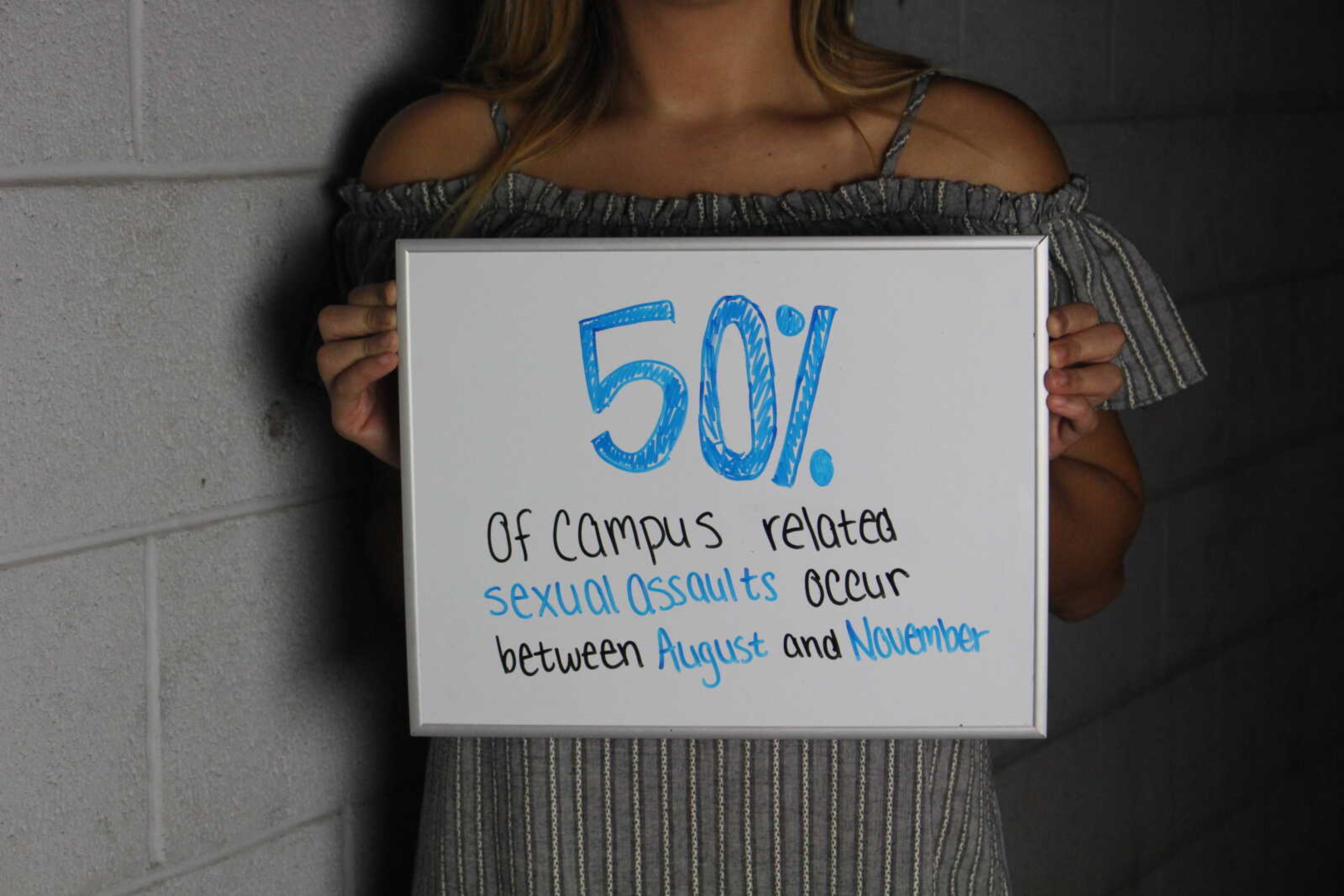
Research shows that the first six weeks in college are crucial to incoming freshmen. During this time, students are exposed to new environments, social interactions and temptations such as alcohol and drug use they likely didn’t experience before coming to campus.
It is for this reason that the first six weeks of the fall semester have been named the “Red Zone.”
According to a Campus Sexual Assault Study done by the Department of Justice in 2007, more than 50 percent of college sexual assaults occur between August and November, especially within the first six weeks of school.
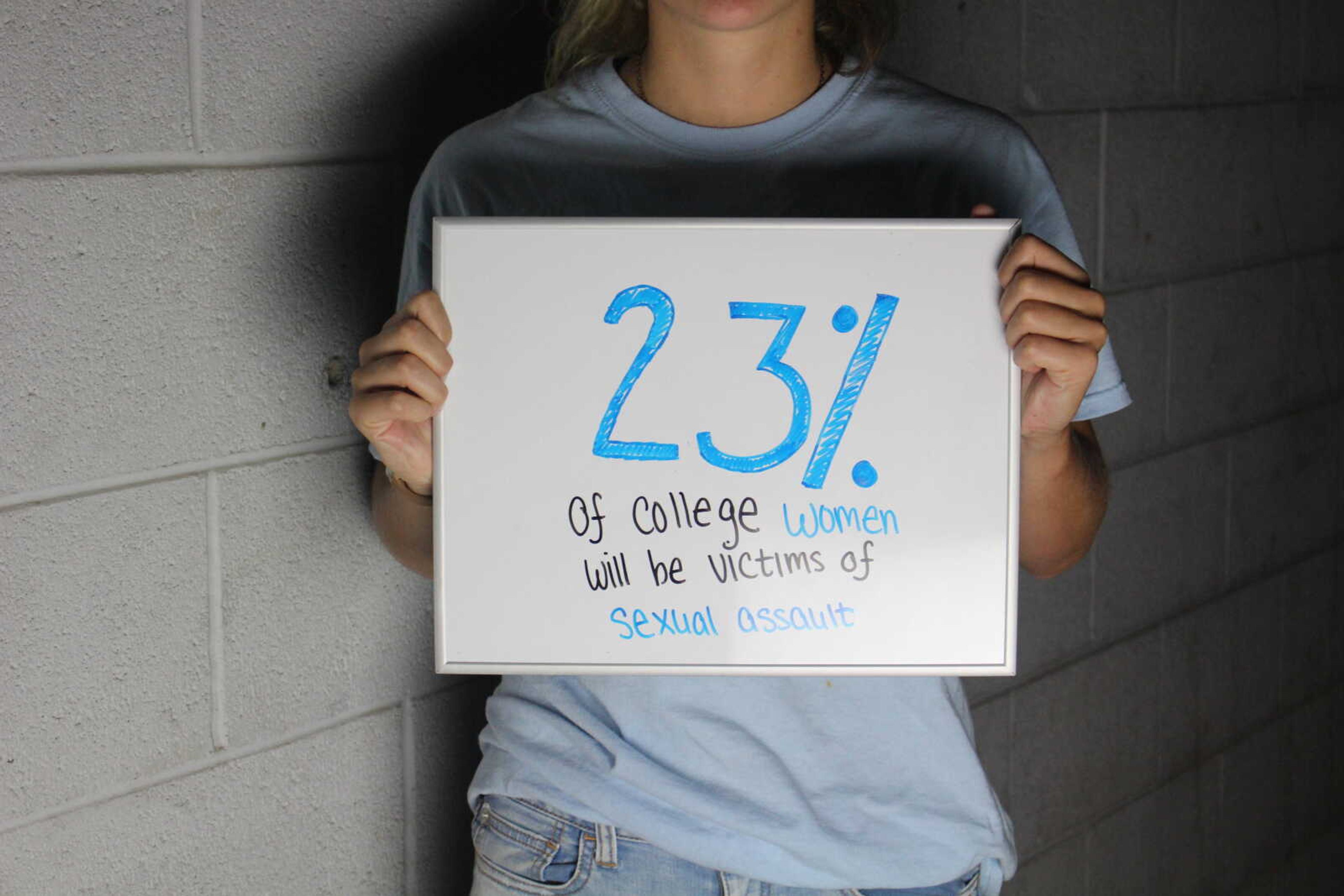
Approximately 23 percent of college-aged women and 5 percent of college-aged men will be sexually assaulted, according to the Rape, Abuse & Incest National Network (RAINN). Only 20 percent of these assaults are likely to be reported to police.
“Sexual assault is a highly unreported event,” Donna St. Sauver, coordinator for Campus Violence Prevention, said. “Data shows that about 10 percent of sexual assaults are reported. It’s hard to research. We receive about seven to 10 sexual assault reports every year. And those don’t mirror national statistics. Two to three of those actually occur on this campus.”
In 2015, the epidemic of sexual assault on college campuses was featured in the documentary “The Hunting Ground,” which follows the cases of female students who are survivors of sexual assault and rape. The documentary revealed the lackadaisical investigations into sexual assault reports performed by college administrations around the United States.
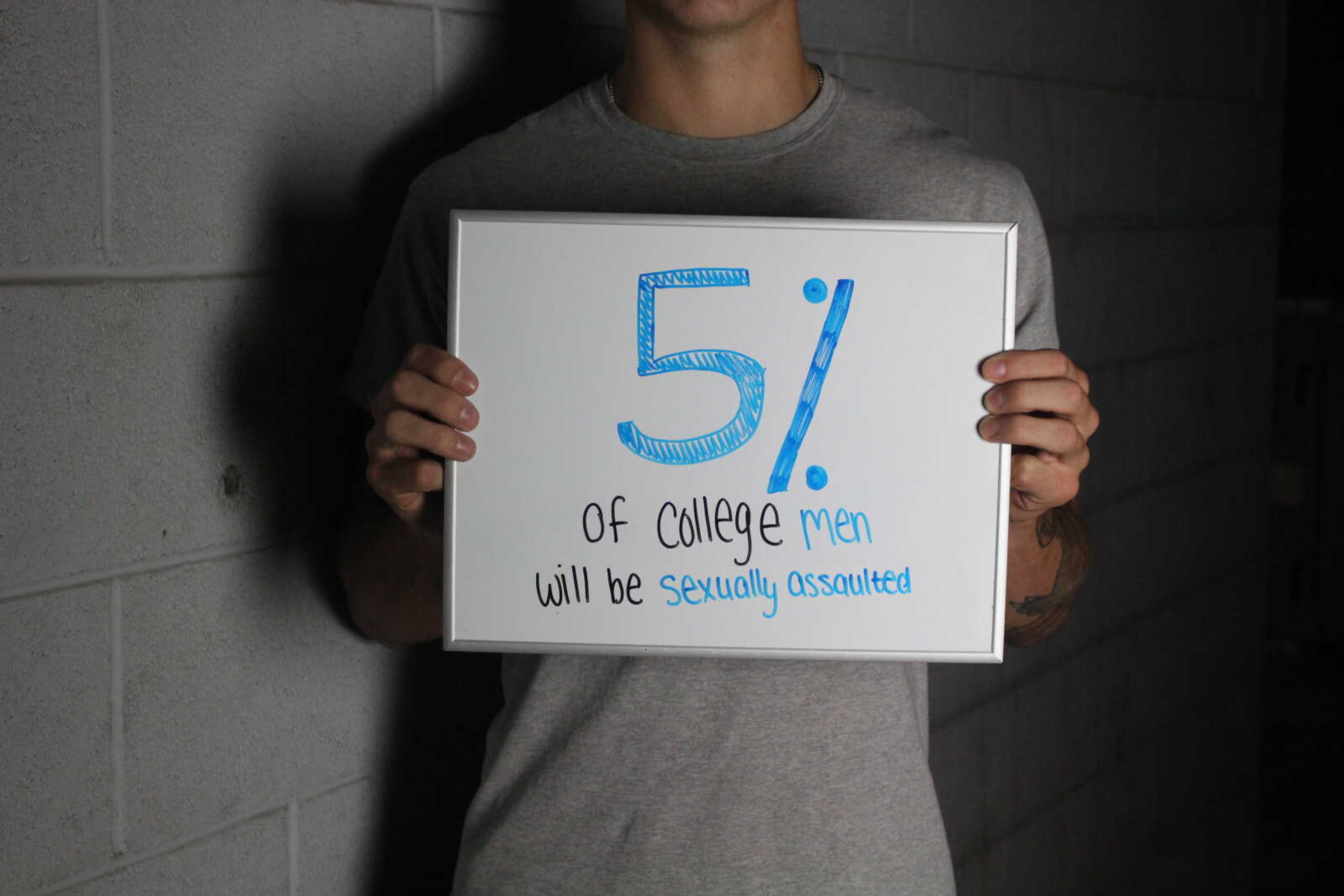
More recently, the case of Brock Turner has made national headlines.
In June, Turner was sentenced to six months in jail after sexually assaulting an unconscious woman in January of 2015. The former Stanford swimmer was turned in by students who found Turner raping the woman behind a dumpster. The victim’s lawyers asked that Turner be sentenced for six years in prison, but the judge, Aaron Persky, insisted that due to Turner’s age and lack of criminal record, six months in jail and probation were appropriate. Stanford has since banned Turner from returning to campus, but Turner was released from prison on Sept. 2, three months earlier than originally scheduled.
The case echoed those mentioned in “The Hunting Ground,” where reports of sexual assault were not taken seriously by law enforcement or university officials.
Southeast is making efforts to help students feel more comfortable reporting sexual assault to administration.
“The message that we want to get out at Campus Violence Prevention program is we are a confidential source,” St. Sauver said. “Not just CVP, but also the whole counseling department. We are staffed with licensed professional counselors and a social worker. We have state confidentiality and that trumps the university’s state-mandated reporting. So if you or someone that you know experiences interpersonal violence, we are a really good place to come to … I know that there a lot of students that form relationships with faculty and staff, and certainly we want them to go to those people to gain support. If they report in that way, the Office of Student Conduct is notified and the university does investigate all reports.”
According to BestColleges.com, Southeast is the 11th safest university in the United States and the Department of Public Safety is determined to maintain that reputation.
“We take our job providing a safe environment for all students very seriously and I think our university does an excellent job,” St. Sauver said. “We’ve done viewings of ‘The Hunting Ground’ where universities don’t have processes for students to report, and it’s disheartening and unacceptable. I am proud of the process that we do have.”
DPS provides a number of services to ensure campus safety at Southeast, including the lighted corridor and blue emergency phones, 24-hour patrols of campus, monitors and cameras around campus, emergency texts and the operation of the shuttle system until 2 a.m.
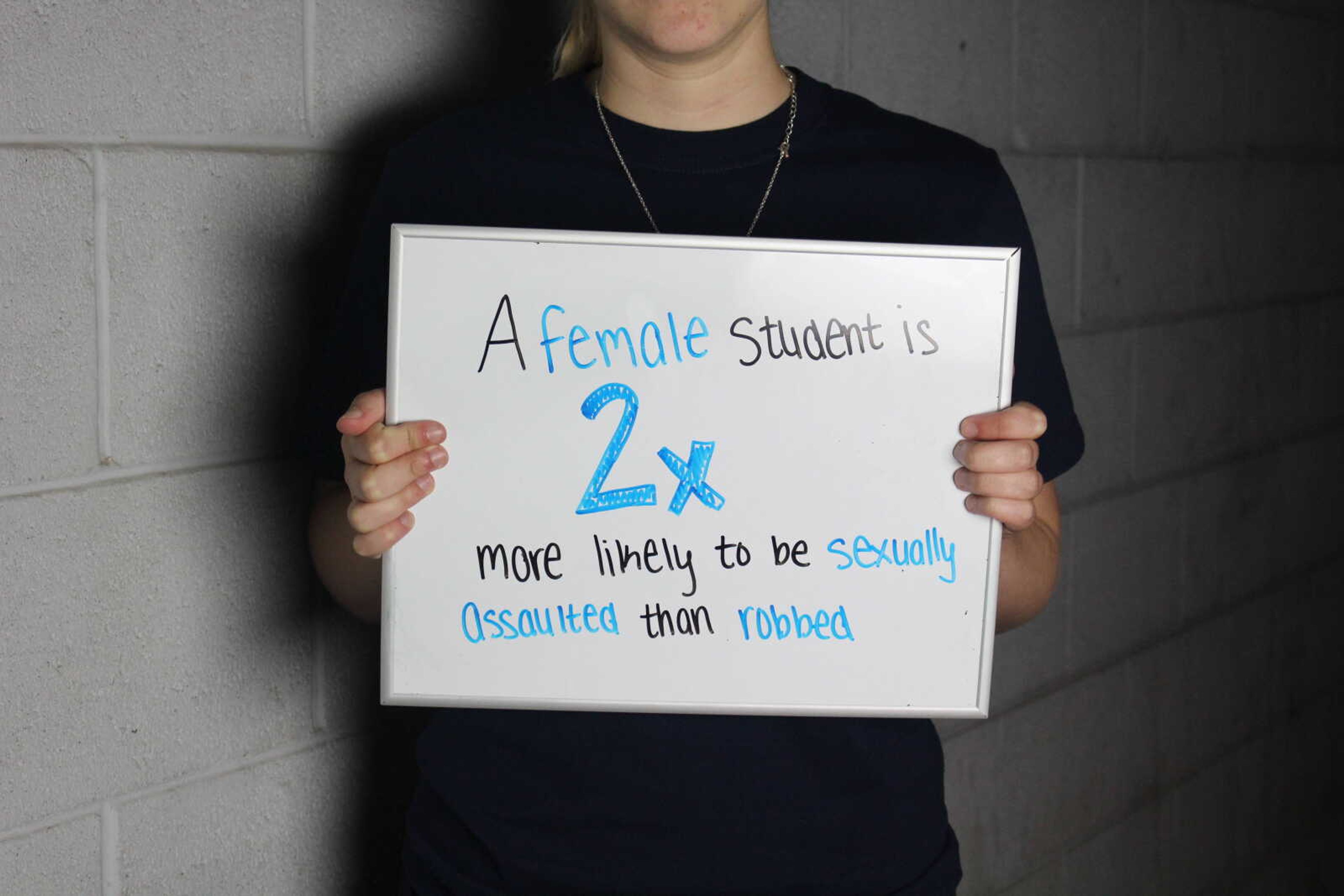
DPS works with other departments at Southeast like the offices of Residence Life and Student Conduct in order to keep students safe.
“If a residence assistant sees something within Residence Life, they contact us,” Kenny Mayberry, assistant director and captain of patrol operations, said. “If the hall director sees something, they contact us. We have police officers proactively engaging on this campus 24 hours a day, actively patrolling this campus.”
Mayberry said the best way for students to remain safe on and off campus is to be aware of their surroundings, monitor beverages and never travel alone.
Southeast depends on student reporting to solve issues around campus, and DPS encourages students to come forward with any reports of violence, sexual assault or other crimes of which they became aware. They also encourage students to watch out for one another.
“We have a problem where we tend to think that other people’s stuff isn’t our business so we don’t step up,” St. Sauver said. “I always tell students that if they see something that seems off to believe their senses and to check in. If we’re looking out for each other, we’re all a lot safer.”
Beth Glaus, interim director of the Department of Public Safety, encourages students to remember the tools and skills they learned as kids when they come to Southeast either as returning students or incoming freshmen.
“We think about ‘stranger danger’ with little kids and then we get to be about adults and, particularly for freshmen, this may be the first time they’re out here thinking, living and doing things on their own and some of those same principles still apply,” Glaus said. “I’m not going to welcome somebody into my room or onto my floor if I don’t know who they are.”
Mayberry encourages any student concerned about their safety on campus to contact DPS for available resources.
“If it’s their fears, their fears are just,” Mayberry said. “We need to figure out how to make them feel comfortable here and be able to go about their daily activities without fear, but with a healthy respect of you’re in a new community and new communities always bring new challenges.”
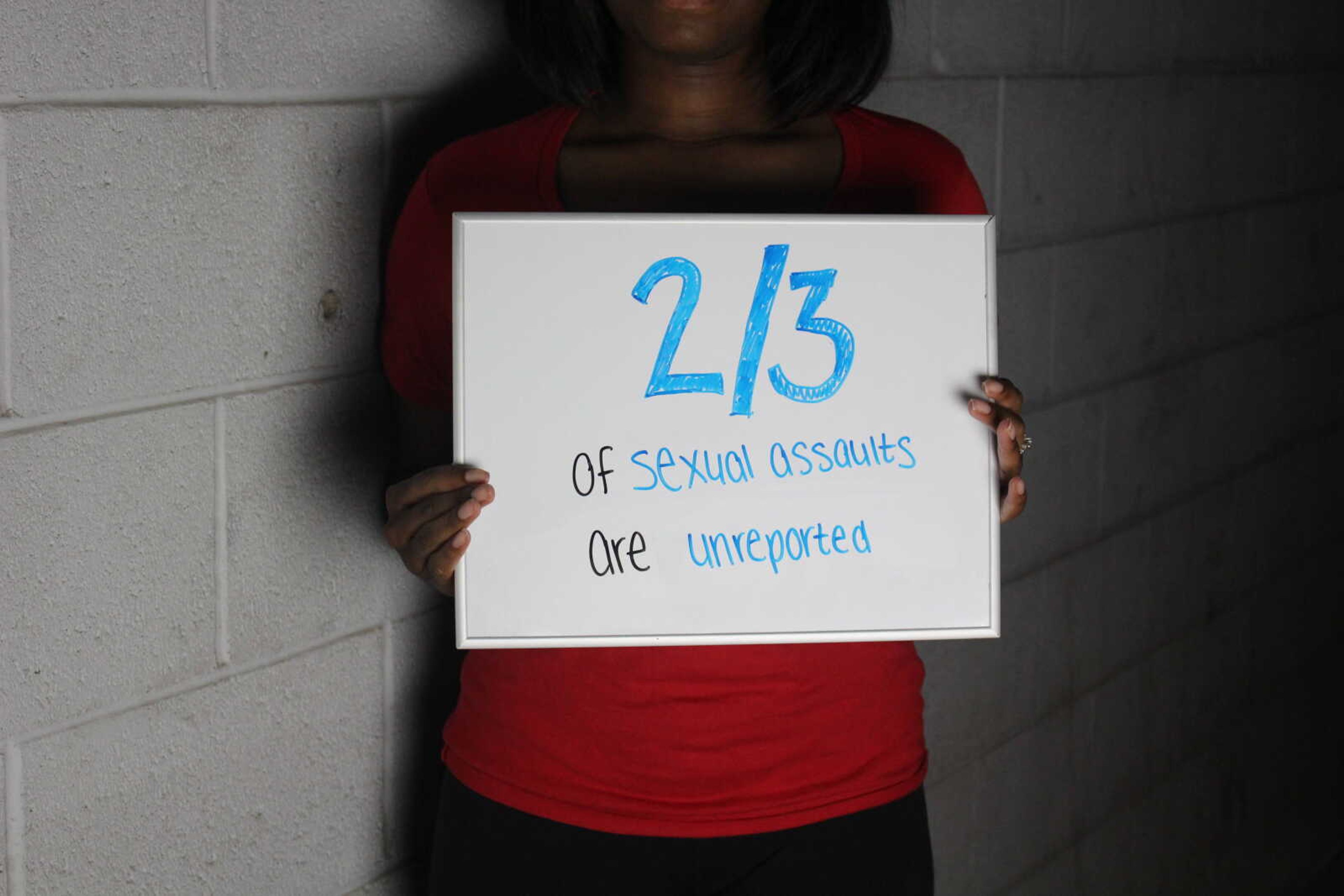
Victims of sexual assault have a variety of options available to them at Southeast when it comes to reporting a crime.
“It depends on what the student wants,” Mayberry said. “There’s so many things out here, under this holistic approach, we’re all so well connected. Health and counseling will provide them with what they need, whether that be going to a doctor or Beacon Health Care or just talking to a counselor, while giving them a range of options that are available to them, whether it’s going to university police to file a police report for prosecution or going to Student Conduct and going through them.”
Resources are available at Counseling and Disability Services to assist victims with depression, anxiety and other side effects of sexual violence. Students also are encouraged to report any instance of sexual assault to university police.
__Safety Tips__ There are many ways to stay safe on and off campus and make sure your friends are safe, too.
1)Use the lighted corridor by following the blue light poles and emergency phones. If you feel that you are being followed or feel unsafe for another reason, call university police as soon as possible. 2) Monitor your beverages and prepare your own if possible. If you leave your beverage alone, get a new one. If you think a friend has had too much, intervene and take them home. 3) Always use the buddy system. Even if you must travel alone, tell a friend where you are going and when you’ll be back so they can know where and when to look for you if necessary. Applications such as Circle 6 can connect you to your friends via cellphone and can help you alert them if you need help. 4) Be aware of your surroundings. Locate all entries and exits of a location in case you need to make a quick getaway. 5) If you notice someone in a possibly unsafe situation, intervene and remove them from the situation and take them to a safe place. 6) If a friend has been sexually assaulted, encourage them to seek medical attention or counseling as soon as possible. Advise them not to shower or use the restroom in order to preserve evidence. __Resources__ If you believe you’re a victim of sexual assault, there are resources available to you.
Counseling and Disability Services, (573) 986-6191
University Police Department, (573) 651-2911
Beacon Health Center, (573) 332-1900 Safe House for Women, (573) 651-1614 Cape Girardeau Police Department, (573) 335-6621 Southeast Hospital, (573) 334-4822
